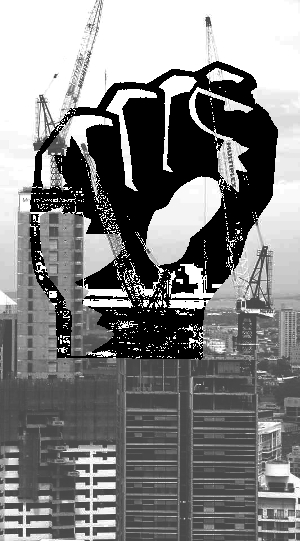May Day marches mark growing wage threat
 Workers around the country have marched on various issues, in the annual May Day union rallies over the weekend.
Workers around the country have marched on various issues, in the annual May Day union rallies over the weekend.
A crowd of thousands was rallied by Queensland’s new Labor Premier Annastacia Palaszczuk in Brisbane, celebrating the removal of former LNP Premier Campbell Newman.
But it was not actually Labour Day in QLD, as Mr Newman moved the holiday to October.
A cheer went up when Ms Palaszczuk reiterated plans to officially move the holiday back to May.
The issue of possible changes to penalty rates was voiced by members of several different industry unions, but no clear signals were given on the topic by Ms Palaszczuk.
In New South Wales, Newcastle saw one of the largest turnouts for May Day rallies.
Newcastle Trades Hall Council secretary Daniel Wallace told the crowds that the weekend’s march would highlight local job losses and threats to penalty rates.
“The three big issues for us would be jobs,” Mr Wallace told reporters.
“How do we create jobs and have a discussion to support manufacturing and support disability services and invest in training in our TAFEs?
“The second is definitely penalty rates. The third issue that we want to give some space to over the next 12 months is wellbeing in the workplace.”
In South Australia, fears over penalty rates were repeated.
“The average Australian is now working over 40 hours a week, in most cases that's unpaid work,” SA Unions secretary Joe Szakacs said.
“We're also seeing a creeping in of a lot of the nasty end of unpaid work in our system, such things as unpaid trial work, which we still see young people exploited with all the time.”
In Western Australia, rallies were concerned about the impact of the modern working week on traditional recreation time.
“The traditional purpose of May Day is to seek a balance of work, rest and play,” UnionsWA Secretary Meredith Hammat said.
“But there's still work to be done with recent data showing that Australians are still working, on average, more than eight hours a day while participation in sport and recreation is declining.”
This year has already been a big one for unionised members of the public sector.
Community and Public Sector Union national secretary Nadine Flood told the ABC on the weekend that the workforce is feeling the strain of Federal Government job cuts and lack of negotiation.
Strikes have been organised across the public sector.
“Industrial action is a last resort for public sector workers but this action will have an impact on the community,” Ms Flood said.
“With the action we've taken so far, we've already seen delays to services such as Centrelink and Medicare.
“That's unfortunate but it's necessary.
“Three quarters of Federal Government agencies are moving to industrial action. That means Border Protection, Centrelink, Medicare, the CSIRO, the tax office and so on, kicking off with the first strike action on budget day at the tax office.”








 Print
Print